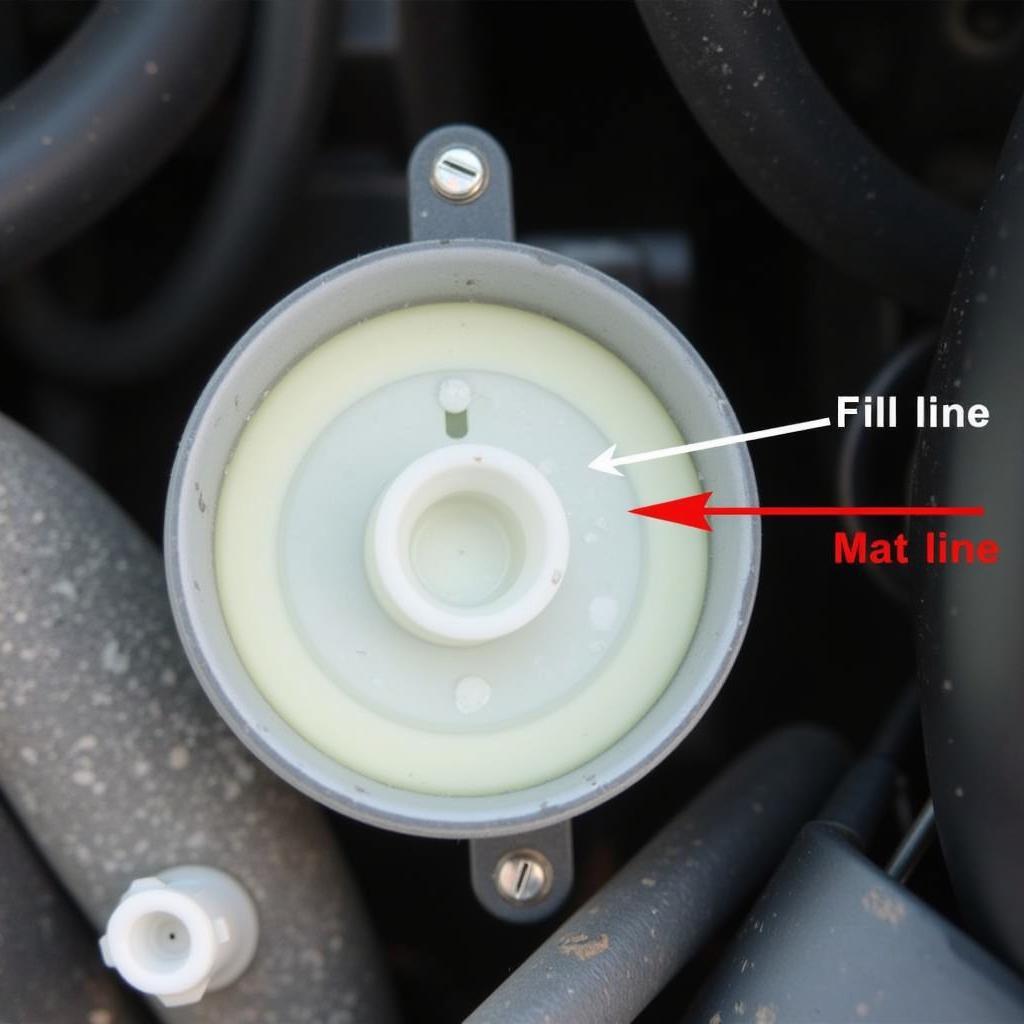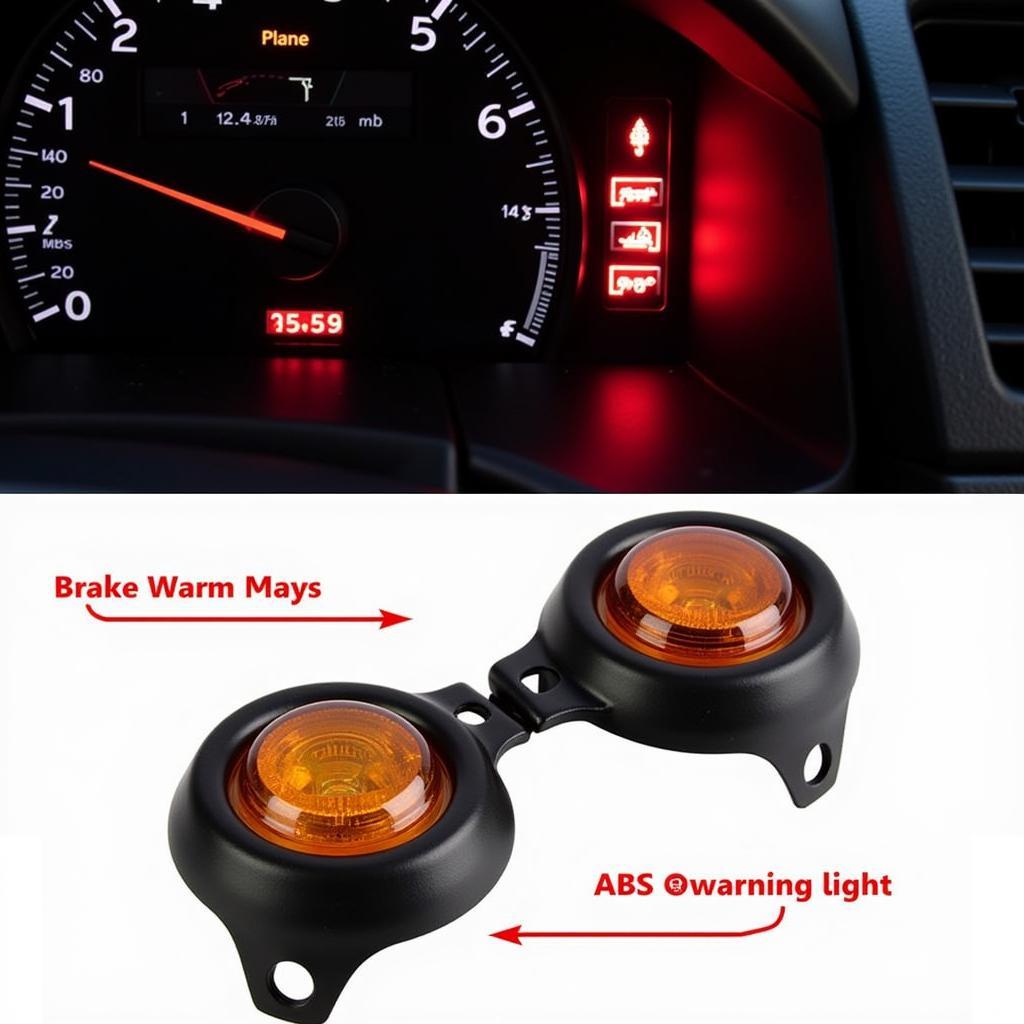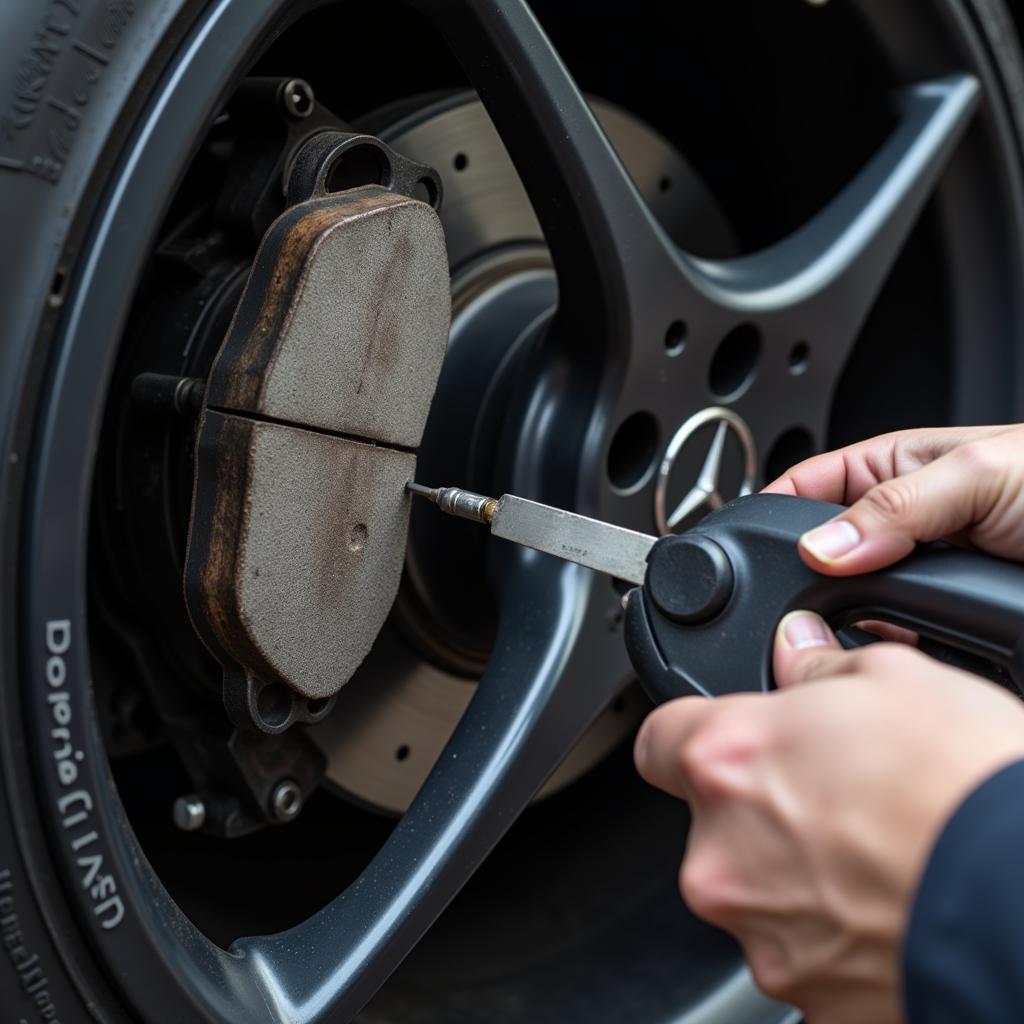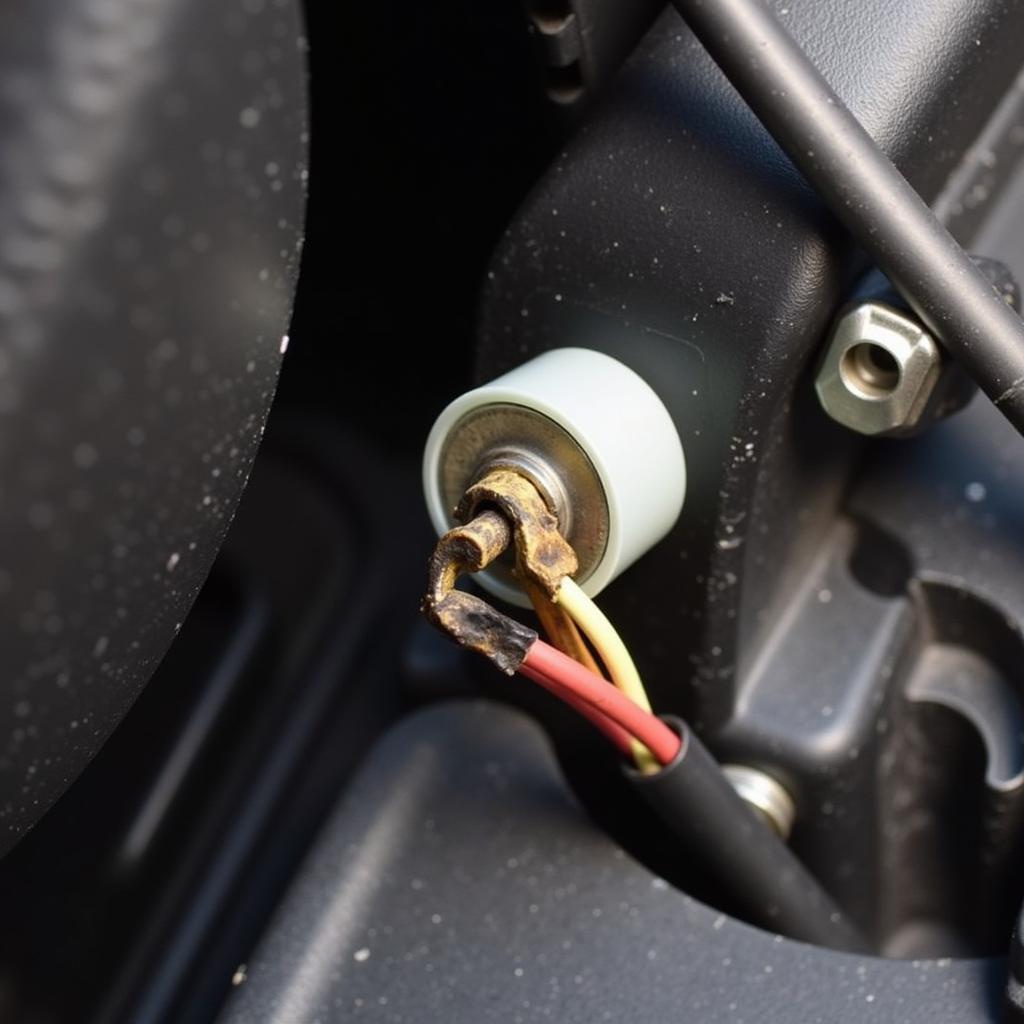The brake warning light on your 2011 Nissan Altima is designed to grab your attention when it senses a potential issue with your braking system. Ignoring it could put you and others at risk. However, deciphering what it’s trying to tell you can be confusing. This article will guide you through the different brake warning lights on your 2011 Altima, what they mean, and how to address them.
Understanding Your 2011 Nissan Altima Brake Warning Lights
Your 2011 Altima utilizes a combination of warning lights to signal different braking system issues:
- Red Brake Warning Light: This light illuminates when the parking brake is engaged. It should switch off when the parking brake is released. However, if it stays on or flickers while driving, it usually signals a problem with your hydraulic brake system, low brake fluid, or a potential issue with the ABS system.
- Amber ABS Warning Light: This light specifically relates to your Anti-lock Braking System (ABS). When illuminated, it indicates a potential malfunction within the ABS system. While your regular brakes may still function, the ABS might not engage during hard braking, potentially leading to wheel lockup.
Common Causes of Brake Warning Lights in a 2011 Nissan Altima
- Low Brake Fluid: This is the most common culprit. Over time, brake fluid levels naturally deplete.
- Worn Brake Pads: As your brake pads wear down, the brake fluid level in the reservoir will decrease. If you’ve recently had your brake pads replaced and the light comes on, it might be a sign the brake fluid wasn’t topped off properly.
- Brake Fluid Leak: A leak in the brake lines or a faulty brake caliper can lead to a dangerous drop in brake fluid pressure.
- Faulty ABS Sensor: These sensors monitor wheel speed and help the ABS function correctly. A malfunctioning sensor can trigger the ABS warning light.
- ABS Module Issues: While less common, problems within the ABS module itself can activate the warning light.
 2011 Nissan Altima Brake Fluid Reservoir
2011 Nissan Altima Brake Fluid Reservoir
What to Do When Your Brake Warning Light Comes On
- Safely Pull Over: If you’re driving and a brake warning light illuminates, find a safe location to pull over and assess the situation.
- Check the Parking Brake: Ensure the parking brake is fully disengaged. If the red brake warning light goes off, the issue was likely just an accidentally engaged parking brake.
- Inspect Brake Fluid Level: With the engine off, carefully open the brake fluid reservoir (refer to your owner’s manual for its location). The fluid level should be between the “MIN” and “MAX” markings.
- Do Not Drive If…:
- The brake fluid level is very low or empty.
- You see signs of a brake fluid leak (puddles of fluid under the car).
- Your brake pedal feels spongy or goes to the floor.
- Seek Professional Help: If you notice any of the above or the warning light persists, it’s crucial to have your car towed to a trusted mechanic or dealership for diagnosis and repair.
 2011 Nissan Altima Brake Warning Lights Dashboard
2011 Nissan Altima Brake Warning Lights Dashboard
Tips for Maintaining Your 2011 Nissan Altima’s Brakes
- Regular Brake Inspections: Have your brakes inspected by a professional at least once a year, or more frequently if you drive in harsh conditions.
- Brake Fluid Flush: Nissan recommends flushing your brake fluid every 2 years or 24,000 miles to maintain optimal braking performance and prevent corrosion within the system.
- Quality Brake Pads: Invest in high-quality brake pads for longer lifespan and better braking efficiency.
- Address Warning Lights Promptly: Never ignore brake warning lights, even if they seem intermittent. Early detection and repair can prevent costly damage and ensure your safety on the road.
“Ignoring brake warning lights is like ignoring a fever,” says master mechanic John Miller, owner of Miller Automotive. “It’s your car’s way of telling you something is wrong. Addressing the issue early can save you a lot of trouble and expense down the road.”
Conclusion
Understanding what your 2011 Nissan Altima’s brake warning lights mean is essential for your safety and the longevity of your vehicle. By recognizing the warning signs, addressing them promptly, and performing routine maintenance, you can ensure your Altima’s braking system remains reliable for miles to come. Remember, when it comes to brakes, it’s always better to err on the side of caution and seek professional help when needed.


